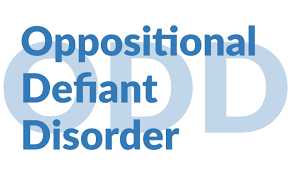Oppositional Defiant Disorder in childhood and adolescence.
Apr 11, 2023
This essay discusses Oppositional Defiant Disorder (ODD), a disorder that affects many children and adolescents. ODD is characterized by persistent patterns of defiant, disobedient, and hostile behavior towards authority figures, such as parents or teachers. Common symptoms include argumentativeness, defiance, refusal to comply with requests or rules, and blaming others for one's own mistakes.
ODD is often associated with other psychiatric disorders such as Attention-Deficit/Hyperactivity Disorder (ADHD) and Conduct Disorder. It can also have an impact on academic performance in school due to the child's inability to cooperate with teachers and follow instructions. Therefore, it is important to recognize the signs of ODD early so that appropriate interventions can be put in place to minimize its impact.

Treatment for ODD typically includes a combination of behavioral therapy, cognitive-behavioral therapy, and family counseling sessions. Positive reinforcement techniques can help children learn to manage their emotions, while also teaching them how to respond appropriately in situations that may be challenging or difficult. Additionally, parents should work with the child's doctor to form a treatment plan tailored specifically to the individual's needs and situation.
While ODD is not usually considered a serious mental health disorder, it can significantly impair functioning and quality of life if left untreated. It is important for parents and caregivers to recognize the signs of ODD and seek appropriate treatment as soon as possible if they suspect their child might have it. With proper intervention, children affected by ODD can learn how to manage their emotions more effectively and improve their overall functioning.
In conclusion, Oppositional Defiant Disorder is a common disorder that affects many children and adolescents. It is important to recognize the signs of ODD early so interventions can be put in place quickly to minimize its impact. Treatment typically includes a combination of behavioral therapy, cognitive-behavioral therapy, and family counseling sessions. With appropriate help and support, children affected by ODD can learn how to manage their emotions more effectively and improve their overall functioning.
